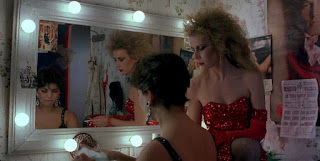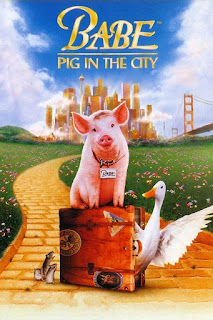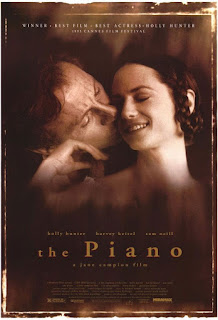June 21st: DARK HABITS (Pedro Almodóvar, 1983)
NOTE: This film will be projected in the high-definition Blu-ray format.
When her boyfriend dies of a heroin overdose, a nightclub performer hides from the authorities at a convent dedicated to helping "fallen" women, where the nuns have their own surprising vices.
After the death of Francisco Franco and his oppressive 40-year dictatorship, Spain saw a cultural rebirth, and one of its most unique, outspoken voices was young filmmaker Pedro Almodóvar, rising out of the subculture and shining a light on its hedonistic inhabitants. His first two features, in the early 1980s, were very DIY affairs, with low budgets and loose plotlines.
The director was approached by a wealthy investor, who wanted to bankroll films on the condition his girlfriend starred in them. Almodóvar originally had a more ambitious story and layered main character, but eventually made changes when he realized his new star did not have much acting ability, making the convent setting and the nun characters more prominent.
Like most of Almodóvar's films, this was shot on location in Madrid. with Ángel Luis Fernández returning as cinematographer (they would make a total five films together). From the visuals alone one can already detect a maturation of Almodóvar's aesthetic, with more baroque compositions and a distinct color palette, with influences ranging from Douglas Sirk's 1950s Hollywood work to British horror films from the famed Hammer Productions.
The cast is filled with longtime Almodóvar collaborators, including Carmen Maura (Volver, Women on the Verge of a Nervous Breakdown) Cecilia Roth (All About My Mother), Julieta Serrano (Tie Me Up Tie Me Down, Women on the Verge...), Marisa Peredes (Al About My Mother, The Devil's Backbone), Chus Lampreve (Volver, Women on the Verge...)
In addition to exploring (and satirizing) the role of the Catholic Church in modern society, Almodóvar plants a foot in melodrama, which would be a major aspect of his work going forward, shifting between serious and broader comic tones in his films. The use of bolero music to accentuate the more emotional aspects of the story would become another one of his trademarks.
Rejected by the Cannes Film Festival for its offensive religious content, it was also relegated to out-of-competition status for its screening at the Venice Film Festival. Its critical reception in Italy and Spain was divisive, but the film was still successful with the local audience and bolstered Almodóvar's rising status. Serrano won a Best Actress from the Barcelona-based Sant Jordi Awards,
Running time is approx. 100 min.
When her boyfriend dies of a heroin overdose, a nightclub performer hides from the authorities at a convent dedicated to helping "fallen" women, where the nuns have their own surprising vices.
After the death of Francisco Franco and his oppressive 40-year dictatorship, Spain saw a cultural rebirth, and one of its most unique, outspoken voices was young filmmaker Pedro Almodóvar, rising out of the subculture and shining a light on its hedonistic inhabitants. His first two features, in the early 1980s, were very DIY affairs, with low budgets and loose plotlines.
The director was approached by a wealthy investor, who wanted to bankroll films on the condition his girlfriend starred in them. Almodóvar originally had a more ambitious story and layered main character, but eventually made changes when he realized his new star did not have much acting ability, making the convent setting and the nun characters more prominent.
Like most of Almodóvar's films, this was shot on location in Madrid. with Ángel Luis Fernández returning as cinematographer (they would make a total five films together). From the visuals alone one can already detect a maturation of Almodóvar's aesthetic, with more baroque compositions and a distinct color palette, with influences ranging from Douglas Sirk's 1950s Hollywood work to British horror films from the famed Hammer Productions.
The cast is filled with longtime Almodóvar collaborators, including Carmen Maura (Volver, Women on the Verge of a Nervous Breakdown) Cecilia Roth (All About My Mother), Julieta Serrano (Tie Me Up Tie Me Down, Women on the Verge...), Marisa Peredes (Al About My Mother, The Devil's Backbone), Chus Lampreve (Volver, Women on the Verge...)
In addition to exploring (and satirizing) the role of the Catholic Church in modern society, Almodóvar plants a foot in melodrama, which would be a major aspect of his work going forward, shifting between serious and broader comic tones in his films. The use of bolero music to accentuate the more emotional aspects of the story would become another one of his trademarks.
Rejected by the Cannes Film Festival for its offensive religious content, it was also relegated to out-of-competition status for its screening at the Venice Film Festival. Its critical reception in Italy and Spain was divisive, but the film was still successful with the local audience and bolstered Almodóvar's rising status. Serrano won a Best Actress from the Barcelona-based Sant Jordi Awards,
Running time is approx. 100 min.










Comments
Post a Comment